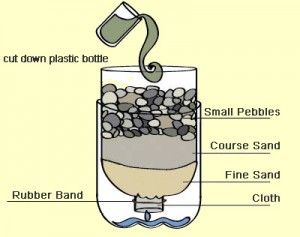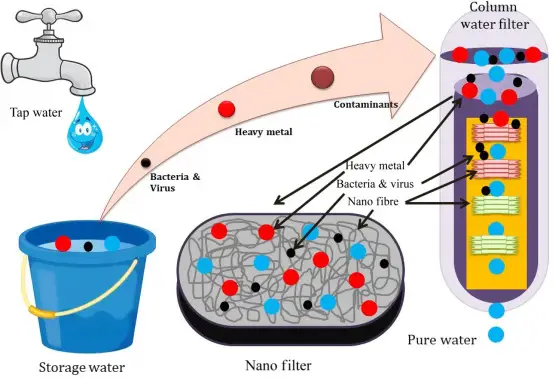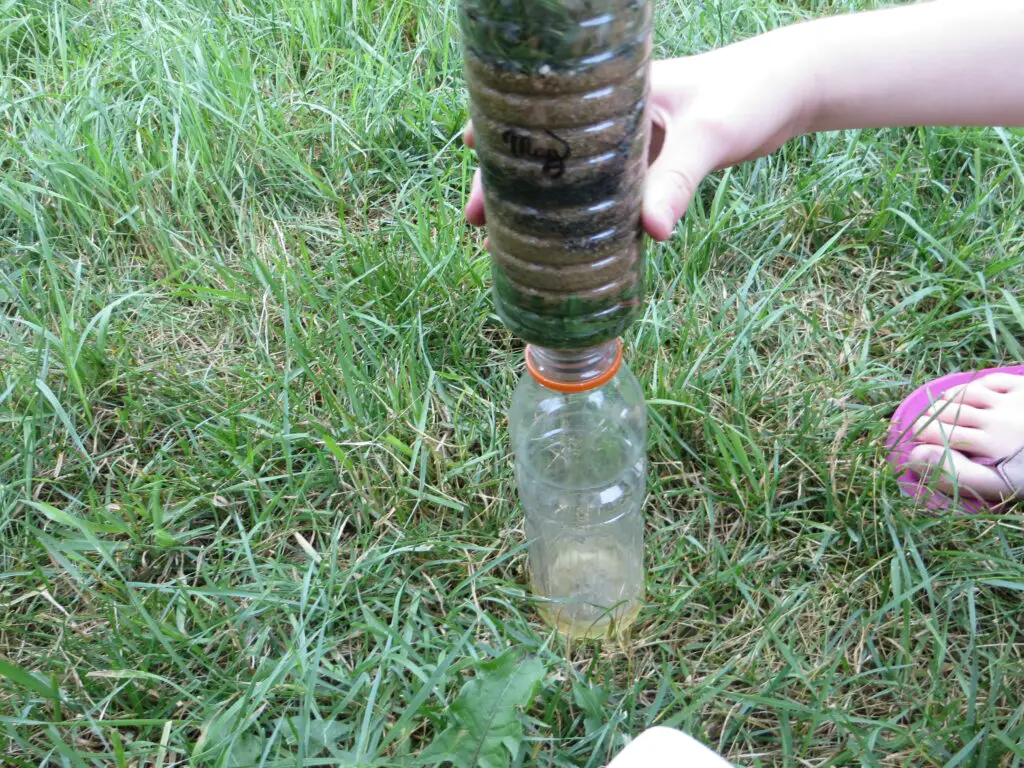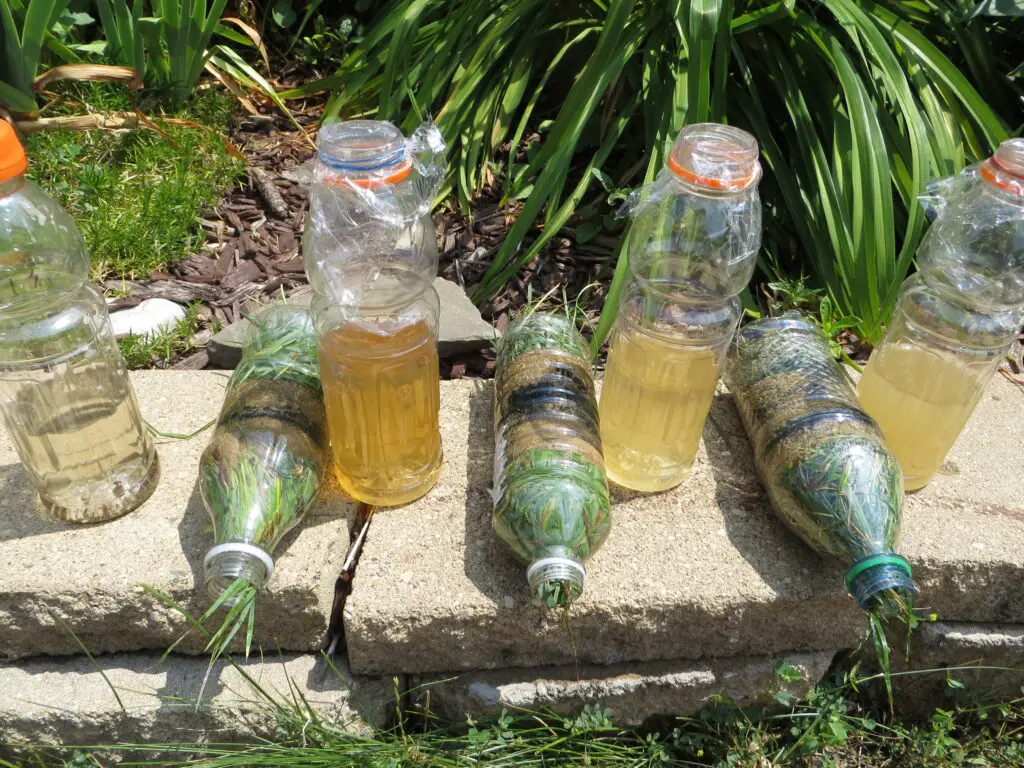In today’s article, you will discover the fascinating science behind water filtration and why it is crucial for preppers to be well-informed about this process. With the increasing concern over water scarcity and the potential for contaminated water sources during emergencies, understanding the science behind water filtration becomes more important than ever. By gaining insight into how water filters work and the different methods available, preppers can confidently prepare for any situation and ensure their access to safe and clean drinking water. So, let’s dive in and explore the science that will empower you to be prepared for the unexpected.

Importance of Water Filtration for Preppers
Ensuring Safe Drinking Water During Emergencies
When it comes to emergency preparedness, having access to safe drinking water is absolutely crucial. During emergencies such as natural disasters or situations where the water supply is compromised, having a reliable water filtration system can mean the difference between life and death. Water filters are designed to remove pollutants, contaminants, and pathogens from water sources, making them safe to consume. As a prepper, it is essential to have a water filtration system in place to ensure the availability of clean and safe drinking water during emergencies.
Protection Against Contaminants in Natural Water Sources
Natural water sources such as rivers, lakes, and streams are prone to contamination. These sources may contain harmful bacteria, viruses, heavy metals, chemicals, and even microplastics. Without proper filtration, consuming water from these sources can lead to severe health issues. Water filters play a vital role in protecting against these contaminants, effectively removing them and providing you with safe and clean drinking water. By investing in a reliable water filtration system, preppers can ensure that they have access to clean water even when the primary water supply is compromised.
Understanding Water Filtration
The Basics of Water Filtration
Water filtration is the process of removing impurities and contaminants from water to make it suitable for consumption. It involves passing water through a filtration medium that effectively traps and removes harmful substances. The filtration process can vary depending on the type of filter being used. However, the goal remains the same – to produce clean and safe drinking water.
Different Types of Water Filters
There are several different types of water filters available on the market, each with its own unique filtration methods and capabilities. Some common types of water filters include activated carbon filters, reverse osmosis filters, and ultrafiltration filters. Activated carbon filters are highly effective at removing organic compounds and chlorine, while reverse osmosis filters use a semi-permeable membrane to eliminate contaminants. Ultrafiltration filters are capable of removing even smaller particles and microorganisms. Understanding the different types of water filters is crucial in choosing the right one to meet your specific needs.
How Water Filters Work
Mechanical Filtration
Mechanical filtration is one of the primary methods used in water filters. It involves physically trapping and removing large particles and impurities from the water. This is typically accomplished through a porous material or a straining mechanism that allows water to pass through while holding back the contaminants. Mechanical filtration is effective at removing visible particles such as sediment and debris from the water.
Activated Carbon Filtration
Activated carbon filtration is a common method used in many water filters. The activated carbon, typically in the form of granules or powdered carbon, has a large surface area covered in tiny pores. As water passes through the carbon filter, pollutants and chemicals are adsorbed onto the carbon’s surface. This process effectively removes organic compounds, chlorine, and some heavy metals, resulting in cleaner and better-tasting water.
Reverse Osmosis
Reverse osmosis is a filtration process that uses a semipermeable membrane to remove a wide range of impurities from water. In this process, water is forced through the membrane, which has tiny pores that allow water molecules to pass while blocking larger particles, such as contaminants and minerals. Reverse osmosis is highly effective at removing dissolved solids, heavy metals, and other contaminants, making it one of the most efficient water filtration methods available.
Ultrafiltration
Ultrafiltration is a more advanced form of filtration that uses a membrane with smaller pores than reverse osmosis. It is capable of removing even smaller particles and microorganisms from water, including bacteria and viruses. Ultrafiltration is an excellent option for preppers who want to ensure the highest level of purity in their water source.
Choosing the Right Water Filter
Consideration of Water Source and Contaminant Type
When choosing a water filter, it is crucial to consider the type of water source you will be dealing with and the specific contaminants you want to remove. Different filters are designed to target specific contaminants, so understanding the source of your water and the potential contaminants it may contain will help you select the most appropriate filtration system for your needs. For example, if you are accessing water from a natural source that may contain bacteria or viruses, a filter with ultrafiltration capabilities would be a good choice.
Flow Rate and Filter Lifespan
Another important consideration when choosing a water filter is the flow rate and filter lifespan. The flow rate refers to the amount of water the filter can process in a given time. Depending on your needs, you may require a filter with a higher flow rate to accommodate larger quantities of water. Additionally, the filter lifespan is an essential factor to consider, as it determines how long the filter will effectively remove contaminants before it needs to be replaced.
Maintenance and Replacement Requirements
Every water filter requires regular maintenance and occasional replacements to ensure optimal performance. It is essential to consider the maintenance and replacement requirements of the filter you choose. Some filters may require more frequent cleaning, while others may need replacement cartridges or membranes after a certain period. Understanding and following the manufacturer’s instructions for maintenance and replacement will help prolong the lifespan and efficiency of your water filter.

Testing and Certification of Water Filters
Certification Standards for Water Filters
Water filters can undergo third-party testing and certification to validate their effectiveness and performance. Certification standards, such as those provided by organizations like NSF International or the Water Quality Association, ensure that the filters meet specific criteria for contaminant reduction. When purchasing a water filter, look for certifications such as NSF/ANSI standards to ensure that you are investing in a reliable and trustworthy product.
Importance of Third-Party Testing
Third-party testing is essential in validating the claims made by manufacturers regarding their water filters’ performance. It provides an independent assessment of a filter’s ability to reduce specific contaminants and ensures that it meets the necessary standards for effectiveness. By choosing a water filter that has undergone rigorous third-party testing, you can have confidence in its ability to provide safe and clean drinking water during emergencies.
Common Water Contaminants and their Removal
Bacteria and Viruses
Waterborne bacteria and viruses can cause serious illnesses and pose a significant health risk. Filters with ultrafiltration capabilities are highly effective at removing these microorganisms from the water. The tiny pores in the membrane can trap and prevent the passage of bacteria and viruses, ensuring that the water you consume is free from these harmful pathogens.
Heavy Metals
Heavy metals, such as lead, arsenic, and mercury, often find their way into natural water sources through industrial pollution or old infrastructure. Filters using activated carbon or reverse osmosis technologies are particularly effective at removing heavy metals from water. These filters can significantly reduce the levels of heavy metals, making the water much safer for consumption.
Chemical Pollutants
Chemical pollutants, such as pesticides, herbicides, and industrial chemicals, can contaminate water sources and pose health risks. Activated carbon filters are highly efficient at removing these chemical compounds, as the carbon’s porous surface adsorbs and traps the pollutants. Reverse osmosis filters are also effective at removing chemical contaminants, providing an additional layer of protection against harmful substances.
Microplastics
Microplastics, tiny particles of plastic less than 5 millimeters in size, have become a widespread environmental concern. These particles can end up in water sources and find their way into our drinking water. Activated carbon filters and ultrafiltration filters are effective at removing microplastics, ensuring that the water you consume is free from these harmful pollutants.

Preparing for Water Filtration in Emergency Situations
Stockpiling Water Filters and Replacement Parts
To ensure preparedness for emergency situations, it is essential to stockpile an adequate supply of water filters and replacement parts. The availability of clean and safe drinking water may be limited during emergencies, so having extra filters and parts on hand can ensure a continuous supply. It is advisable to have multiple filters and replacement cartridges stored in a safe and easily accessible location.
Water Storage for Emergency Use
In addition to water filters, preppers should also have a reliable water storage system in place. Emergency situations may require storing water for an extended period. Storing water in airtight containers, such as food-grade plastic or glass bottles, is essential to prevent contamination. It is recommended to store at least one gallon of water per person per day for emergencies, ensuring an adequate supply for drinking, cooking, and sanitation needs.
DIY Water Filtration Methods
Boiling Water
Boiling water is one of the most accessible and effective DIY methods for water filtration. By bringing water to a rolling boil for at least one minute, most microorganisms, including bacteria and viruses, can be killed or inactivated. However, boiling does not remove chemical pollutants or heavy metals. Boiling is a reliable backup method when no other filtration options are available.
Using Iodine or Chlorine Tablets
Iodine or chlorine tablets can be used to disinfect water and kill bacteria and viruses. These tablets are readily available in camping or outdoor supply stores. When following the instructions provided, they can effectively treat water for safe consumption. It is important to note that these tablets may not remove chemical pollutants or heavy metals, so their use should be limited to emergency situations only.
Improvised Charcoal Filters
Improvised charcoal filters can be created from common household materials such as a clean sock or pantyhose filled with activated charcoal or crushed charcoal briquettes. This DIY filter can be used to remove larger particles, sediment, and some chemical impurities from water. While it may not provide the same level of filtration as commercial filters, it can help improve the clarity and taste of water during emergencies.

Maintenance and Care of Water Filters
Cleaning and Disinfection
Regular cleaning and disinfection of water filters are essential to maintain their optimum performance. Manufacturer instructions should be followed for proper cleaning techniques, as each filter has specific maintenance requirements. Cleaning typically involves rinsing or scrubbing the filter components to remove any accumulated debris or contaminants. Disinfection can be achieved using a mixture of water and bleach or other approved disinfectants, ensuring that the filter is free from harmful bacteria or microbes.
Replacing Filter Cartridges
Most water filters have filter cartridges or membranes that need replacement over time. The frequency of replacement depends on the filter type, usage, and the water quality being filtered. It is crucial to regularly monitor the filter’s performance and follow the manufacturer-recommended replacement schedule. Neglecting to replace filter cartridges can reduce the effectiveness of the filtration system and compromise the quality of the water being filtered.
Storing Filters Properly
Proper storage of water filters is essential to maintain their integrity and prolong their lifespan. Filters should be kept in a clean and dry environment, away from direct sunlight and extreme temperatures. Storing filters in their original packaging or in sealed containers can help prevent the accumulation of dust or debris. It is advisable to regularly inspect stored filters for any signs of damage or deterioration and replace them as necessary.
Conclusion
Water filtration is a critical aspect of emergency preparedness for preppers. Access to safe and clean drinking water is essential to ensure survival during emergencies when the primary water supply is compromised. Understanding the basics of water filtration, different types of filters, and how they work is crucial in choosing the right filtration system for your needs. By selecting a reliable water filter, considering the water source and contaminants, and properly maintaining the filter, preppers can ensure that they have access to clean and safe drinking water when it matters most. Investing in water filtration systems, stockpiling filters and replacement parts, and having a water storage plan in place are crucial steps towards ensuring the availability of clean water during emergency situations. Whether relying on commercial water filters or temporary DIY methods, it is essential to prioritize water filtration as part of your emergency preparedness strategy.

